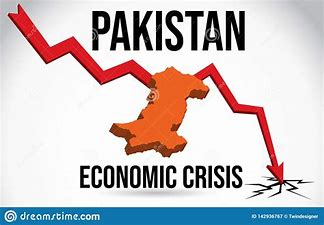China, renowned for its status as the world’s second-largest economy and its staggering population, is currently on the cusp of witnessing a substantial exodus of millionaires, marking an intriguing economic phenomenon. Recent research, as reported by Henley & Partners, a consultancy specializing in investment migration, placed some facts. It forecasts that China will experience the most substantial outflow of millionaires in the world this year.
The Exodus Phenomenon
The data furnished by Henley & Partners paints a striking picture: In 2022, a net total of 10,800 high-net-worth individuals bid adieu to China, and an additional net 13,500 are expected to follow suit this year. This isn’t a sudden development; rather, it’s a persistent trend that has spanned the past decade. China has consistently witnessed the highest number of millionaires departing each year, resulting in a palpable deceleration in overall wealth growth within the nation. Andrew Amoils, the head of research at New World Wealth, a global wealth intelligence firm involved in the report, underscores the gravity of the situation, noting, “The recent outflows could be more damaging than usual. China’s economy experienced robust growth from 2000 to 2017, but wealth and millionaire growth in the country has been negligible since then when measured in U.S. dollar terms.”
China’s Economic Significance
China’s status as an economic juggernaut is undeniable, and its impact on the global economic landscape is profound and multifaceted. Here are key facets of China’s role on the world stage:
1. A Driver of Global Economic Growth
China has emerged as a pivotal contributor to global economic growth. Its rapid industrialization and export-driven expansion played a crucial role in lifting numerous countries out of recession, particularly during the 2008 financial crisis.
2. The World’s Factory
China is often hailed as the “world’s factory” due to its role as a manufacturing powerhouse. It serves as a primary source of low-cost goods, which has contributed to deflationary pressures worldwide, benefiting consumers while challenging manufacturers in other nations.
3. Supply Chain Dominance
China’s dominance in global supply chains is a linchpin of its influence on the world economy. Many industries heavily depend on Chinese components and production, a reliance that has resulted in disruptions, notably during the COVID-19 pandemic, and raised concerns about over-dependence.
4. Persistent Trade Surpluses
China consistently maintains a trade surplus with several countries, including the United States and the European Union. This surplus has spawned trade tensions and accusations of unfair trade practices, such as currency manipulation and intellectual property theft.
5. Magnet for Foreign Investment
China has become a magnet for foreign direct investment (FDI), with outward FDI from China growing at a breakneck pace. Chinese companies are acquiring assets and making investments worldwide, significantly impacting global markets and competition.
6. The Currency Conundrum
China’s management of its currency, the yuan (Renminbi), has been a contentious issue. Accusations of currency manipulation have triggered trade disputes and sparked concerns about their impact on global exchange rates.
7. The Belt and Road Initiative (BRI)
China’s ambitious Belt and Road Initiative (BRI) is a sprawling infrastructure development project that spans continents. While aimed at enhancing trade connectivity, it has also raised concerns about debt dependency among participating countries.
8. Technological Advancements
China has made remarkable strides in technology and innovation, with companies like Huawei and Tencent gaining global prominence. However, this progress has also raised concerns regarding intellectual property theft, national security, and global technology competition.
9. Appetite for Commodities
China’s rapid urbanization and industrialization have fueled substantial demand for commodities such as oil, metals, and agricultural products, significantly affecting global commodity prices and markets.
10. Environmental Implications
As the world’s largest emitter of greenhouse gases, China’s environmental policies and practices have far-reaching implications for climate change and sustainability efforts worldwide.
11. Integration into Global Financial Markets
China’s integration into global financial markets has deepened, with initiatives like the inclusion of the yuan in the IMF’s Special Drawing Rights basket. This development has repercussions for global currency reserves and financial stability.
12. Geopolitical Complexities
China’s ascent has led to heightened geopolitical tensions, particularly with the United States. Trade disputes, territorial conflicts, and ideological differences loom large, potentially affecting global stability and economic relations.
13. COVID-19 Pandemic Impact
China’s handling of the initial COVID-19 outbreak and its role as a major supplier of medical goods during the pandemic have underscored its influence on global health and the interconnectedness of the world economy.
In summary, China’s footprint on the world economy is extensive and intricate, encompassing trade, investment, technology, geopolitics, and more. Its dual role as both an engine of global economic growth and a source of economic challenges positions it as a pivotal player in the ever-evolving global economic landscape.
The Exodus from China
The term “exodus” in the context of China encompasses various phenomena, and we will explore a few potential reasons for this significant population movement, along with its potential impacts on the global economy. Furthermore, we will delve into the tech sector in China and how changes in this sector can reverberate across the globe.
1. Capital Flight and Economic Uncertainty
One possible reason for the exodus from China is capital flight driven by economic uncertainty, political instability, or concerns about the business environment. This entails affluent individuals and businesses relocating their assets and investments out of China in pursuit of more stable and secure wealth management environments. This capital outflow can exert a considerable impact on China’s economy, potentially resulting in the depreciation of the yuan and reduced domestic investment.
Impact on the Global Economy:
- Currency Markets: A yuan depreciation can send ripples through global currency markets, influencing trade balances and exchange rates worldwide. Other countries may face competitive pressures as Chinese exports become more affordable.
- Commodity Prices: As a major consumer of commodities such as oil, metals, and agricultural products, a slowdown in China’s economy could lead to decreased demand and lower commodity prices, impacting commodity-exporting nations.
- Global Financial Markets: Capital flight from China has the potential to disrupt global financial markets, creating turbulence in international stock markets and exerting pressure on emerging market economies closely tied to China.
2. Regulatory and Political Pressures
Another driving factor behind the exodus could be heightened regulatory scrutiny and political pressure on Chinese tech companies and their executives. In recent years, China has implemented tighter regulations on tech giants like Alibaba and Tencent, potentially prompting tech entrepreneurs and professionals to explore opportunities abroad.
Impact on the Global Economy:
- Technology Sector: China’s technology sector plays a pivotal role in driving innovation and economic growth. If talent and investment exit China’s tech industry, it could impact global supply chains, especially in the electronics and semiconductor sectors.
- Tech Hubs: Countries with established tech hubs, such as Silicon Valley in the United States, may benefit from an influx of Chinese tech talent and investment, potentially leading to increased innovation and competitiveness.
- Cybersecurity and Data Privacy: China’s regulatory actions could influence the global landscape for cybersecurity and data privacy, necessitating international tech companies to adapt their practices to meet China’s requirements and potentially leading to changes in global standards.
In conclusion, the exodus from China carries far-reaching consequences for the global economy, particularly within sectors like technology. The flow of capital, talent, and investment can present both challenges and opportunities for various regions and industries worldwide. It underscores the interconnected nature of the global economy and the necessity for nations to adapt to evolving dynamics related to China and its influence on the global stage.
Why Exodus from China is Happening?
As reported by Enspirment (published in February 2023), the exodus of individuals from China can be attributed to several factors. The Chinese government’s unwavering commitment to a stringent zero-COVID policy for nearly three years, beginning with the onset of the coronavirus pandemic in late 2019, has given rise to an array of humanitarian concerns.
Residents grapple with issues ranging from depression and despair to stringent lockdown measures, unemployment, and constraints on personal freedoms. Furthermore, government censorship on speech and expression compounds these challenges. Consequently, some private business owners are seeking refuge abroad, not only to protect their wealth but also to secure their families’ futures.
The cumulative effect of these circumstances has catalyzed a significant mass migration from mainland China, leading to the popularization of the term “run xue” (escape from China) on the internet. This movement transcends demographics, encompassing individuals from various walks of life, including the wealthy, the educated, and the working class, all actively exploring avenues to depart the country. Some have even begun inquiring with immigration agents about potentially illicit means of leaving.
Furthermore, the increasingly challenging political climate in China has prompted select Communist Party officials to defect overseas and align themselves with anti-communist movements. Collectively, these factors contribute to the growing trend of individuals leaving China for a myriad of reasons.
In conclusion, the exodus from China represents a multifaceted phenomenon rooted in economic, political, and social factors. It carries significant implications not only for China itself but also for the global economy and the geopolitical landscape. As individuals and wealth continue to flow out of China, the world watches closely to discern how this mass migration will shape the future of the nation and the world at large.
Conclusion
In conclusion, the current exodus of millionaires and individuals from China signifies a pivotal moment in the country’s economic and social landscape. China, a global economic giant, finds itself grappling with a significant outflow of wealth and talent, a trend that has persisted for over a decade. This phenomenon is rooted in a complex interplay of economic uncertainty, political pressures, and societal challenges, all of which are contributing to a notable shift in the global economic balance.
As China continues to navigate these challenges, the world is closely monitoring the far-reaching consequences of this mass migration. The global economy, deeply intertwined with China’s growth and influence, stands to be significantly affected. From currency markets to global supply chains and from technology innovation to geopolitical relations, the implications of this exodus are multifaceted and extend far beyond China’s borders.
Moreover, the exodus from China serves as a stark reminder of the interconnectedness of our world. Economic and social dynamics in one nation can have profound effects on the global stage. It underscores the need for adaptability and resilience in a rapidly evolving global landscape.
As individuals and wealth continue to flow out of China, the world watches with great interest and anticipation, eager to understand how this mass migration will shape not only China’s future but also the trajectory of the global economy and international relations. The evolving story of China’s exodus is a testament to the enduring complexities of our globalized world.
FAQs
1. How is China’s exodus affecting its economy?
China’s exodus is impacting its economy in several ways. It is leading to capital flight, which can result in a depreciation of the yuan and reduced domestic investment. Additionally, it may disrupt global financial markets and affect trade balances.
2. What are the key reasons for the exodus from China?
The exodus from China can be attributed to factors such as economic uncertainty, political pressures, concerns about the business environment, and a desire for more personal freedoms and opportunities abroad.
3. How is the technology sector in China affected by the exodus?
The exodus from China can impact the technology sector by causing talent and investment to leave. This can affect global supply chains, especially in sectors like electronics and semiconductors.
4. What are the potential global consequences of China’s exodus?
The exodus from China can have far-reaching global consequences, including impacts on currency markets, commodity prices, global financial markets, and the cybersecurity landscape.
5. How is the Chinese government responding to the exodus?
The Chinese government has implemented tighter regulations on various sectors, including technology. It is also addressing concerns about capital flight and monitoring individuals leaving the country closely.









